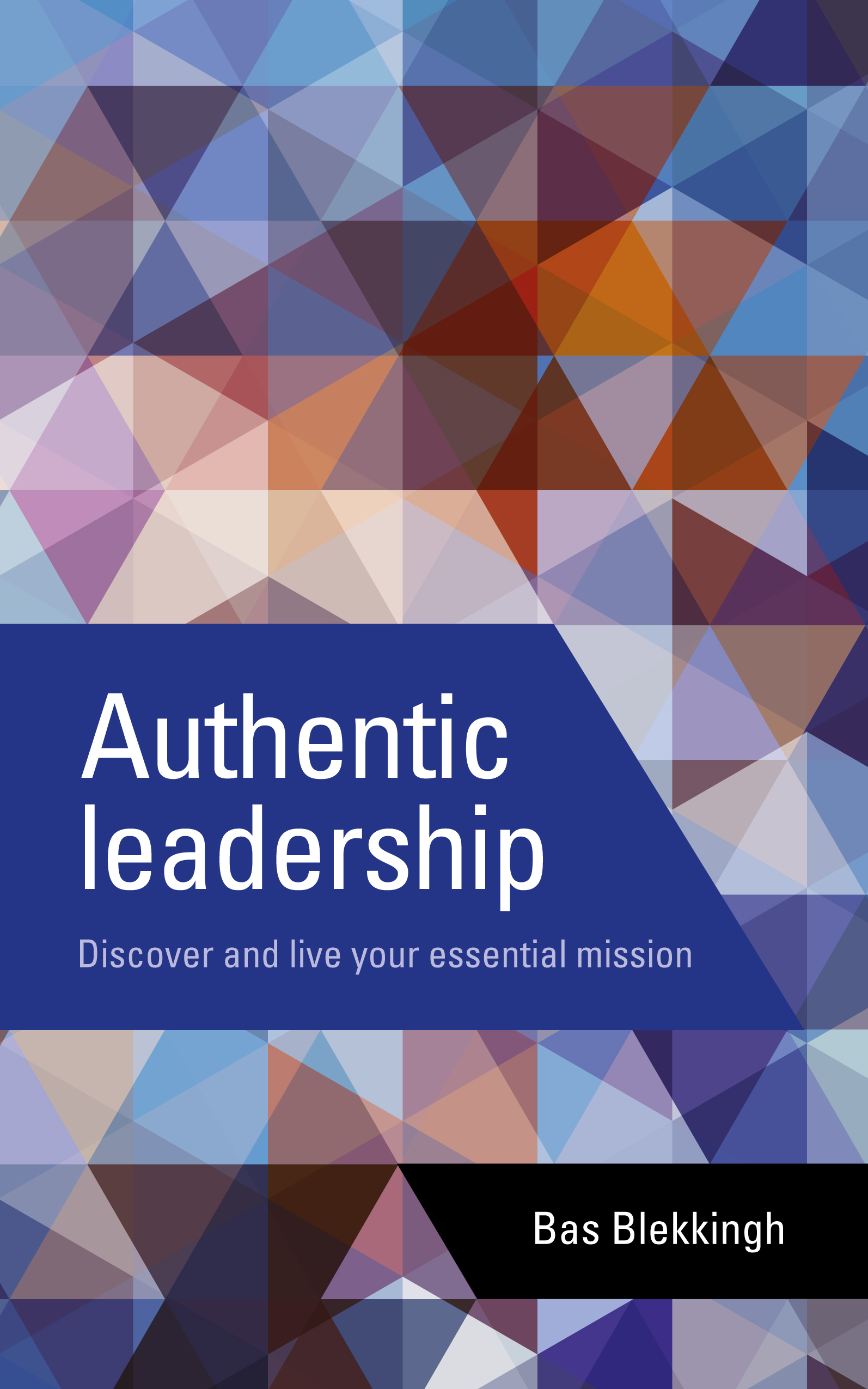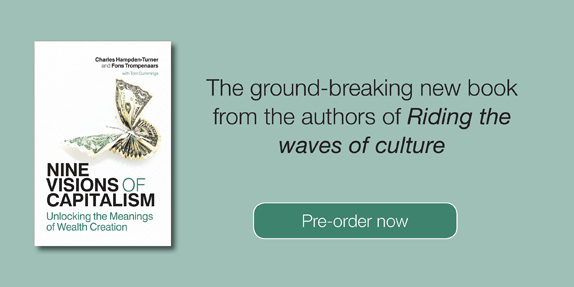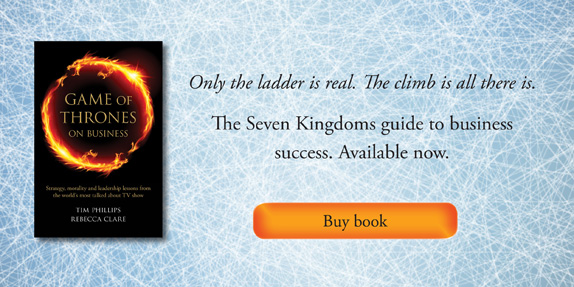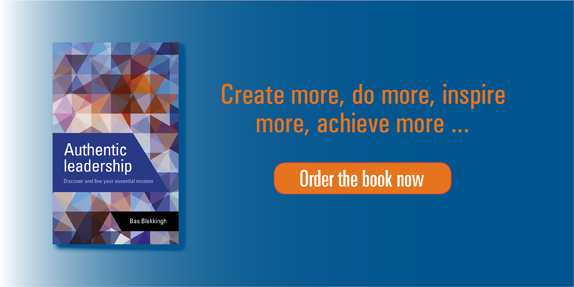Business and finance
Crowdfunding as the antithesis of electoral politics
20 May 2015 by Rebecca in Business and finance, Current events, Nine visions of capitalism
We have just had to endure another stomach-turning electoral contest in which fear, venom, character assassination, unfunded promises and unproven assertions wrestled with each other and which those we collectively abhorred the least eventually won. Thank God we endure it for only six weeks in five years, yet it does us immense damage and sours the public mood. Rarely, if ever, has politics been so bereft of ideas, so sterile in its jousting, so destructive in its name-calling, so locked into rival ideologies that its partisans can no longer think, much less create.
Yet there is another movement afoot, one that is growing at astonishing speed, faster even than the digital revolution. Computer power has been credited with doubling in size every eighteen months but crowdfunding, sometimes called peer-to-peer lending is doubling every three months. But are we comparing like with like? Surely crowdfunding is just one additional way of getting investment funds, a way suited to smaller, maverick projects and can not even lay claim to political significance. We hope to show that it could change capitalism profoundly; it may not be overtly political but it has social and political repercussions of a very meaningful kind.
Crowdfunding is for the moment confined to the Internet. It uses various platforms, such as Kickstarter and Crowd Cube, to put ideas before a ‘crowd’ of on-line investors. A project is described and a request for enough capital is communicated. The crowd either meets the minimum capital needed to launch the project or it does not (money for under-subscribed projects is never collected). About one third of all projects are fully funded and go forward. Those receiving insufficient backing may have failed in any case and it is better for everyone that little loss was incurred at this early stage. However, a project may be relaunched in the future with a revised prospectus. We believe it is a matter of time before this development is picked up by mass media with millions of viewers and becomes a variety of Reality TV with totals raised broadcast during the programme, and with the whole culture celebrating innovation as a way of life. Commercial TV could find a new source of revenue by taking 5% of the total raised.
So let us compare the ‘democracy’ of our electoral process with the democratic potentials of crowdfunding. How do these contrast?
| Electoral process | Crowdfunding process |
| The first-past-the-post system gives big advantages to the majority parties at the expense of all minority interests, e.g. it takes 3.9 million UKIP voters to elect one solitary MP. | Most funds go to small minorities, enabling them to nurture new ideas that go viral on the Internet, with the potential to change everything through daring novelties and life-changing creativity. |
| One party wins and another loses nearly everything in a zero-sum game wherein gains and losses cancel each other out and power is wrested away from opponents in life-shattering ways. | All parties win where the project succeeds, entrepreneurs, investors employees, customers and the community. Ideas have been transformed into new realities beneficial to their instigators and the crowd of enthusiastic supporters and cheerleaders. |
| The game is to achieve power over people, get the electorate to buy your promises, attack and rubbish your opponents and consign them to opposition benches. | The game is to achieve power through people, use their funds to keep your promises and realize the ideals in your prospectus with their money and their moral support. You seek to convert all those involved to your viewpoint. |
| The system is fiercely and relentlessly adversarial. We are right and our opponents wrong, foolish, dangerous and destructive. The least feared and hated party wins. The Devil vies with the Deep Blue Sea. | The system is cooperative and co-creative with investors as midwives of procreation and with only projects that are truly needed receiving funds. Investors are seeking to improve their society, and where they succeed they profit. |
| The system requires millions of pounds to operate large organizations. This puts the electoral systems at the mercy of rich donors who buy access and expect a return for their money. | The system operates by funding thousands of good ideas and small organizations. Funding goes not to power but to potential, to the idea whose time has come, to those with dreams to realize. |
| Large amounts of money from very few people buys continued dominance and conformity to what rich people demand. | Small amount of money from a wide variety of people, fund a very diverse range of new ideas, which change us radically. |
| Large investment portfolios tend to the lowest risk possible and to markets where prices can be administered by market domination. | Small investment portfolios can afford to stake less but risk much more on changing society for the better. Dramatic success is possible. |
| The viewpoint in almost entirely quantitative. Everyone wants just one thing and the answer is more. | The viewpoint is almost entirely qualitative. Everyone wants to help their society but in different ways. |
| The attitude to minorities is that now they have been beaten, they should yield to majority control. They are losers and should be marginalized. | The attitude to minorities is that they are a potentially creative resource and come up with ideas the majority would never hazard. Diversity is infinitely precious. |
| The whole purpose of politics is to realize your own economic self-interest and asserting these aggressively is enough to win. | The whole purpose of crowdfunding is to realize meaningful ideals by offering these to the public for sharing with you. |
| Ideological politics is sterile because everything within one polarized extreme has been tried and one is not allowed to borrow from the rival viewpoint. It is off limits. | Crowdfunding is an industry espousing radical ideas and hence borrows the vehicle, private enterprise, from the Right while the ideals are largely from the Left. Any new political idea is a hybrid of Right and Left. |
| The argument is about redistribution and the power of government. Can it confiscate what others have made? What will this do to enterprise and motivation? | The argument is about pre-distribution. Might companies who promise their crowds to be fair, to promote women, to pay good wages, train their people, and be sustainable, gain better access to crowdfunding? |
| Competition is the life-blood of both politics and business. We we all want more and some of this must be taken from our weaker brethren. | Diversity is the life-blood of both politics and business. Where we are sufficiently different invidious distinctions vanish and nearly all can succeed on their own terms. |
What is unique about crowdfunding is that it starts even before a product or service has been made or any unit of currency spent. It is an idea, an abstraction and a value in our mind’s eye. We can share it with others, discuss within the ‘crowd’ what sort of world we want, producing any number of wealth development and satisfactions. It is a potential rebirth of the Puritan ethic insofar as it begins with the reason for our being and what we should do on earth and whom we should serve with the one life we have. It is the potential sheet anchor of the Innovative Society. Members of parliament have powers to help redesign capitalism as a beneficial force in our nation and insist that it builds industries which engage and develop us all. Where every organization performs before an appreciative crowd the world is changed.
Charles Hampden-Turner and Fons Trompenaars are the authors of Nine visions of capitalism (with Tom Cummings). It will be published on 7th September 2015. To preorder, please email info@infideas.com.
To find out more about Charles Hampden-Turner and Fons Tromenaars, and their company, please click here.
Sansa’s luck is running out (season 5, episode 6)
19 May 2015 by Catherine Holdsworth in Business and finance, Entertainment, Game of Thrones on Business
WARNING, SPOILERS
Last night’s episode of Game of Thrones season 5 could have been the most disturbing yet. I am currently in mourning thinking of the fate of my future husband Jorah and his current sidekick Tyrion, who is heading for sale by cock-merchant. The only light relief in episode 6 was Bronn and Jaime’s bromance which looks likely to end very soon.
However, it is Sansa’s fate that is the cruellest of all. It is clear that Lord Baelish never had her best interests at heart when he sold her to Roose Bolton as a daughter-in law. Her engagement to Ramsay Bolton (/Snow) is the third in the series and the worst yet. The only redeeming quality that Ramsay has is to make King Joffrey look desirable. So she is now married to the most sadistic man in Westeros and her luck is running out. As she remarked to her new husband, though she did not want to marry Tyrion, he was at least kind and did not touch her. The same cannot be said for Ramsay, who raped her in front of her sort-of brother Theon/Reek. It was then, more than ever, that Theon should have remembered himself and finally avenged the hurt that Ramsay had caused him.

Though living in King’s Landing was incredibly unpleasant for Sansa, Rebecca Clare, co-author of Game of Thrones on Business suggests that, “In the vicious world of Westeros, where professional development is scarce, the King’s Landing mentoring programme may be [Sansa’s] best chance of survival”. Under Cersei’s guidance, Sansa was being prepared for a marriage of convenience and learnt how to live as a woman in a man’s world.
Of course, arranged marriages are nothing new, you only have to look at a history of the British Royal Family to see that marriage was another tool in their arsenal to ensure political harmony, financial gain and an excellent line of succession. Sansa has been a victim several times over. Now that she is back in her home of Winterfell, she is more vulnerable than ever. Sure, her marriage to Ramsay should, in theory, keep her safe, but it was clear from this episode that Lord Baelish has no qualms about selling her out for his own gain. Little Finger is playing the long game, he is in this for all he can get and has perfectly manoeuvred his pawn Sansa into the Bolton’s hands. What choice did she have but to walk down that aisle?
Only Theon knows that the younger Stark boys are still alive and given that Bran has not appeared in this series yet, I think it’s safe to say that he is not really a threat to taking back Winterfell. Sansa’s other brother, the illegitimate Jon Snow is too preoccupied at The Wall to help out his sister, that is if he even knows she’s alive. Perhaps it would have been better for Sansa if Jon had accepted Stannis’ offer of legitimacy and marched on Winterfell. Only time will tell how Sansa’s story will end, but if the fate of her other family members is anything to go by, she doesn’t have long.
However, Sansa is not naive. In the past four and a half seasons, she has survived some pretty dire situations. She has been mentored by the ultimate matriarch, Cersei Lannister, and is incredibly strong. From the first season, she has been separated from her family, she has had to think for herself. She is a singular unit, a city-state. By all accounts, she should be dead already, but she isn’t. She has a price on her head and is wanted for killing King Joffrey, but yet still she endures. Though her wedding night to her new husband was difficult to watch, we haven’t seen the end of Sansa yet. But, then again, all men must die, so perhaps her end is nigh…
Is David Cameron an authentic leader?
8 May 2015 by Catherine Holdsworth in Authentic leadership, Business and finance, Current events
All across Britain this morning, we woke to the sounds not of ‘hung parliament’, but of ‘overwhelming majority’. Who would have thought it only a week ago that the Conservative party would not only win the election but do so in such a convincing fashion? Only a few days ago, Nick Clegg was telling anyone that would listen that David Cameron did not believe his party would win outright.
Today’s result marks a startling contrast to the kerfuffle of the 2010 election, where parties were at a stalemate and desperately scrambling to make friends and form a coalition, today Cameron stands tall and accepts his victory with (hardly any) grace. It was a dirty election. To be honest, I could not tell you what any of the main parties’ policies were since the campaign trail dissolved so quickly into character-bashing and grandiose attempts to make the other leaders look worse than each other.
Once again, ladies and gentlemen, this country is going to be run by the upper echelons of society. Those people who schmoozed each other at Eton and enjoy the comfort of not having to pay bedroom tax are now more secure than ever in a position of power. Do we really want George Osborne as Chancellor? The man has never had to budget in his life. No Tesco’s basics beans for him, oh no. But then we come to David Cameron, a man who made Margaret Thatcher look charismatic. Has he ever had to choose between going on holiday or fixing his house? Has he ever had to save every penny he’s earned to afford a mortgage? This is the man that the UK has for the next five years. A party so out of touch with the people seemed to win this election.

Seven years since the 2008 recession and the country is still feeling the pinch. Inflation and VAT is at an all time high with house prices rising at an exponential rate. With the everyday person now not predicted to own a house until they’re in their late thirties, what is David Cameron going to do to help the country back to being ‘Great’? Has anybody forgotten what stellar ethics he possesses by keeping Rebekah Brooks in his pocket? Or lauding it about in the countryside with his incredibly polite and pleasant pal, Jeremy Clarkson? Does anybody remember when Cameron employed now-convicted criminal Andy Coulson? I’m sure these were all oversights.
Only time will tell as to how much of a danger the landslide victory for the SNP will be in Scotland. It would seem that Cameron’s grovelling to keep the UK together is far from over. With five more years under this government, Cameron needs to emerge as a leader that we all have confidence in, not just those who will benefit from the cut in inheritance tax. Cameron now has a majority win, he no longer needs propping up with a deputy Prime Minister. He is desperate for power, that’s for certain, but can he prove himself to be authentic? If the past five years have anything to prove, it’s that Cameron doesn’t like to upset the Fat Cats, those with influence, he will defend his friends rather than speak up for what is right and moral. The next five years may well be even more trying for this government than the last five years. David Cameron must learn to put his ego aside and lead for all the people, not just those with power and influence.
If it all goes to hell, we’re planning on moving across the pond to vote for Hillary!
Cersei’s alliance with the High Sparrow is at a tipping point (Game of Thrones season 5, episode 4)
5 May 2015 by Catherine Holdsworth in Business and finance, Entertainment, Game of Thrones on Business
Last night’s episode of Game of Thrones was a rollercoaster of action and plot developments. The series is finally picking up momentum with uprisings in King’s Landing and across the sea in Meereen. While Daenerys’ servant leadership style worked well in the beginning, those who disagree with her management style have finally begun to rise up. The episode had a religious-extremism quality to it, with the Sons of the Harpy avenging the toppling of their idol in Essos and the High Sparrow commanding his followers to begin to stir up the status quo in Westeros. It was an emotional finale, finally confirming that this series has divorced itself from the books and killing off two important characters. Poor Grey Worm. Daenerys is going to be left with little leverage to refuse Jorah when he returns. The unsullied are dwindling in numbers. (Sidenote: we really liked Jorah’s skirt; it takes a real man to pull off such an outfit when at sea!)
So back to King’s Landing where Cersei seems to have sold her soul, quite literally, to religious extremists. It’s one thing to want to take revenge against the daughter-in-law from hell, but it’s quite another to make a deal with the devil (ahem, the High Sparrow) in an effort to assert one’s superiority over the King’s Court. Now that the numbers of the Small Council have fallen to just two (and what influence does doddering Grand Maester Pycelle really have?) Cersei is running the Court of the King with an iron fist. Now that Sir Loras has been imprisoned, Margery is compromised and Cersei has the upper hand.
However, the danger of making a deal with one as powerful as the High Sparrow is that alliances of convenience can turn on you just as quickly. Unless you hold the power, you are at the mercy of your alliance. The followers of the High Sparrow, weird monk-like extremists, are the unsullied of Westeros, willing to maim themselves for their master. Even the King is powerless before them. Though the alliance was convenient for Cersei in the beginning, this is a dangerous coalition as Cersei is now alone in the court. With Jaime gone and her father dead, her list of allies is very small indeed. What would the High Sparrow make of the (true) rumours about her and Jaime? Will Cersei survive this season? With only a week left of the Tory/Lib Dem coalition of 2010, and the political parties of the UK gearing up for polling day, it would seem that coalitions are forming everywhere. David Cameron was outed as having confessed that he did not believe that his party would again win the election outright. If we’ve learnt anything from the last coalition, it’s that it was a marriage of convenience, much like Cersei and Robert Baratheon. Eventually cracks will begin to show if you cannot work alongside your ally. Cersei’s latest partnership could prove to be more destructive than the last.
Only time will tell, but one thing is certain: Cersei is about to pay for having too much power for far too long.
Authentic leadership by Bas Blekkingh
20 April 2015 by Catherine Holdsworth in Authentic leadership, Business and finance
Could you be a great leader?
What if you could lead better simply by being yourself? No more management training courses or lengthy leadership seminars, just a chance to let the real you shine and achieve success at work and at home.
It sounds too good to be true but a new book called Authentic Leadership, by business consultant Bas Blekkingh, claims anybody can be a great leader just by being ‘real’. Many business books will tell you that in order to lead others you need to perfect certain management techniques or influencing skills. But Blekkingh says it’s far simpler than that – all we need to do is truly understand our own motivation and purpose and great leadership will naturally flow from that.
Bas Blekkingh has experienced many different styles of leadership throughout his career. As a junior world championship rower he was coached with the ‘no pain, no gain’ style of leadership; as an officer in the army he learned to think tactically and organise troops and as a leadership consultant he became familiar with the standard tips and tricks managers are taught to use. But he also discovered that all of these styles of management only took him so far, that something was holding him back and preventing him from feeling completely fulfilled in his work. Blekkingh says, ‘I came to the conclusion that true leadership is not about learning tricks. It’s about unleashing your authentic inner power and facing the fears that stop you giving yourself completely.’
 Blekkingh now runs a highly successful business teaching his insights and methods to other individuals and organisations. In Authentic Leadership he invites readers to learn these methods in order to create more, do more, inspire more and achieve more both at work and in their lives beyond their jobs. He encourages readers to journey through his field-tested seven-layered model in order to discover their mission in life and demonstrates that leading is about more than merely managing others.
Blekkingh now runs a highly successful business teaching his insights and methods to other individuals and organisations. In Authentic Leadership he invites readers to learn these methods in order to create more, do more, inspire more and achieve more both at work and in their lives beyond their jobs. He encourages readers to journey through his field-tested seven-layered model in order to discover their mission in life and demonstrates that leading is about more than merely managing others.
Authentic Leadership is an inspirational, sometimes challenging book that enables readers to create an environment where achievement and fulfilment positively reinforce each other, whether they are a manager, coach, consultant, professional or teacher. So what are you waiting for? Get your copy today!





 WARNING, SPOILERS
WARNING, SPOILERS